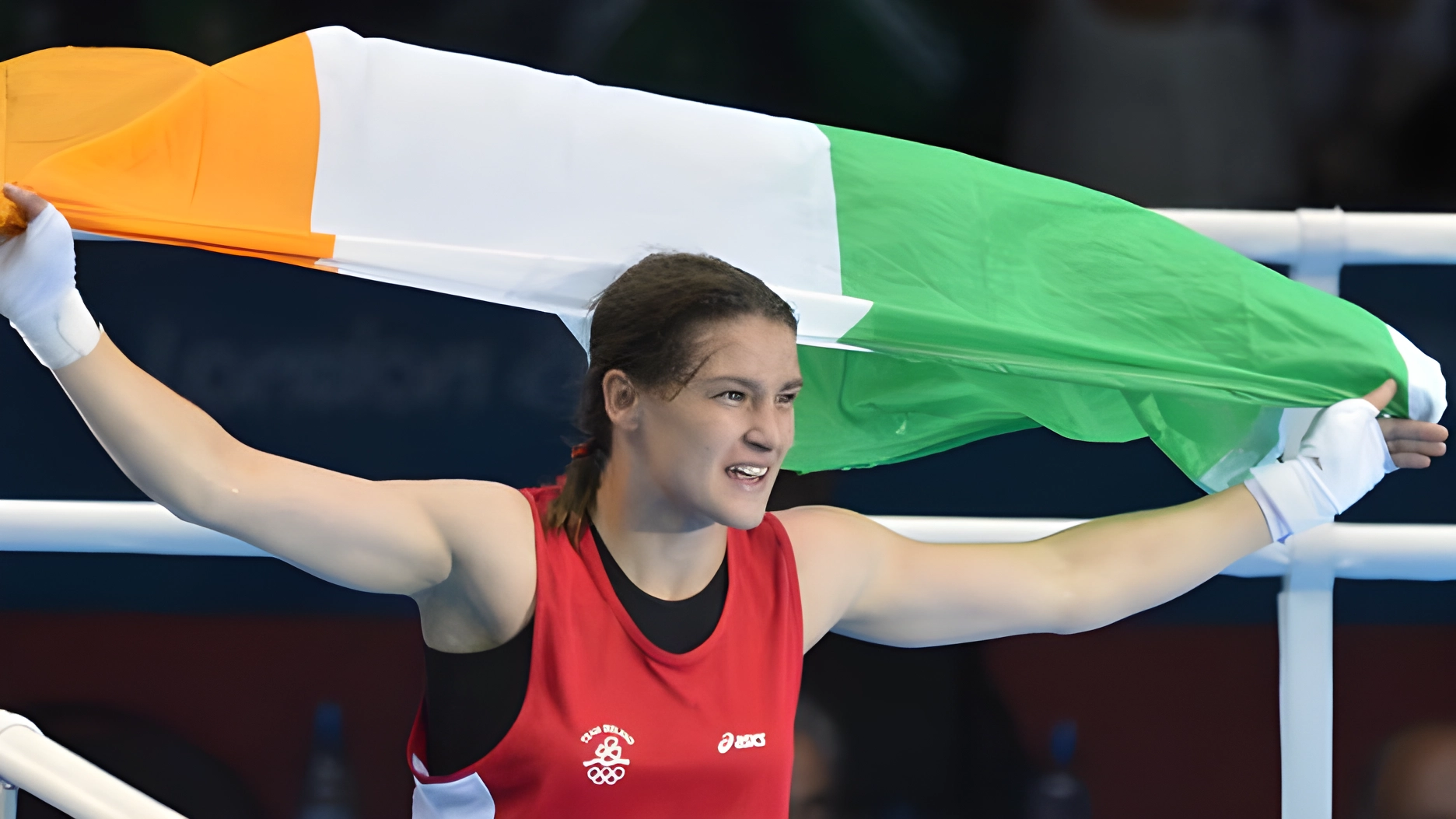How One Gold Medal Reshaped a Whole Sport
London 2012: Where Everything Took Off
In the summer of 2012, the ExCeL Arena in London didn’t just host a boxing tournament. It became the birthplace of a movement. For the first time in Olympic history, women’s boxing was officially on the card. And right in the heart of it stood Katie Taylor, carrying not only the hopes of Ireland, but the weight of a sport still fighting for its place in the sun.
The crowd that day? It was thunderous. You could feel the walls shake as Taylor walked to the ring. This wasn’t your average bout. This was a statement. And when the final bell rang, and her hand was raised after a razor-close win over Russia’s Sofya Ochigava, it wasn’t just about gold. It was about legitimacy.
They didn’t just cheer for a boxer. They cheered for a generation that had waited too damn long to be seen.
I was there. I still get goosebumps thinking about it. I’ve covered hundreds of fights, but few matched the raw electricity of that afternoon in London.
More Than a Medal: What It Meant
Katie Taylor’s victory was more than a notch on the belt. It was vindication. For years, women in boxing had been pushing uphill, battling outdated stereotypes, underfunding, and outright bans in some countries. Suddenly, that gold around Katie’s neck meant cameras turned, sponsors listened, and young girls had someone to point to and say, “That could be me.”
It wasn’t just Ireland that celebrated — it was every girl who’d ever been told boxing wasn’t for her.
Back home, gyms filled up with young hopefuls. Coaches who’d never trained women before started to change their tune. And even old-school promoters — the ones who’d rolled their eyes at “ladies’ fights” — had to admit something was shifting. Because Katie didn’t just box. She boxed beautifully. With technique, poise, and that signature fire that made you lean in closer.
The Ripple Effect Across the Sport
Post-2012, the dominoes started falling. Major events like the AIBA World Championships began putting more weight behind women’s divisions. The number of participating nations grew. TV slots, which used to be a dead zone for female fighters, started opening up.
And look what followed. Claressa Shields. Nicola Adams. Mikaela Mayer. Each one carving out her path — and each one tipping a hat, directly or indirectly, to that moment in London.
One Olympic win won’t fix everything. But it cracked open a door that had been bolted shut for decades.
It’s no accident that promotions like Matchroom and Top Rank started signing more female talent. The business caught up to the passion. Fans weren’t just willing to watch — they were demanding it.
From That High to the Everyday Grind
Of course, after every peak comes the plateau. Women’s boxing didn’t suddenly become mainstream. There were still fights buried on undercards, still pay gaps, still clueless commentary dismissing the skill on display.
Katie knew that too. Instead of riding the Olympic high and fading out, she turned pro in 2016 and got back in the trenches. No shortcuts. No special treatment. She built her name again, brick by brick, and proved that her gold wasn’t a one-off. It was a preview.
What makes her legacy even stronger is that she didn’t rest on Olympic laurels — she kept swinging.
By 2020, she was headlining Madison Square Garden, drawing numbers and headlines once reserved only for the men. That’s not luck. That’s persistence, talent, and pure stubborn love for the sport.
What We See Today Because of That Fight
Now, in 2025, you can’t talk about boxing without mentioning the women’s game. Not if you’re serious. There are more divisions, more stars, and — maybe most importantly — more respect.
Katie Taylor’s win in London didn’t change everything overnight. But it started something real. A movement. A slow burn that’s still going strong. And while new stars are stepping into the spotlight, it’s impossible to forget where the fuse was lit.
You don’t always know when history’s being made. But in London, 2012, we all felt it.
Let’s not kid ourselves — there’s more work ahead. But when that gold medal shone under the London lights, it wasn’t just a prize. It was a promise.



